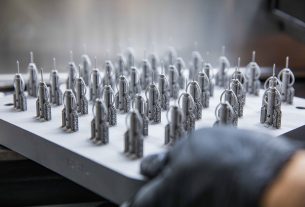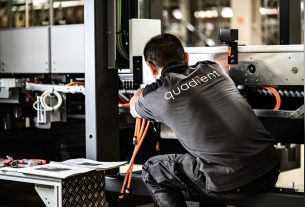
Author: John Harrison, Head of Relationship Management at Allica Bank
Having spent much of my career providing banking services to UK manufacturers, I’ve seen first-hand their strong appetite for innovation and growth.
The ascendence of game-changing technologies like AI and automation means the drive to innovate is stronger than ever. As always, investing in innovation requires capital and this is where business banking partners are central to business success.
However, all too often, mainstream banks focus on supporting large corporate manufacturers, at the expense of those smaller, but still vital, established firms with between 5 and 250 employees.
It’s left a critical part of the manufacturing ecosystem without the support needed to invest and grow.
Invest and Innovate
AI, automation and digital technologies are impacting every industry, and manufacturing is no exception.
The manufacturers I speak to are hugely excited about embracing these new technologies. Enhanced efficiency, supply chain optimisation and cost reduction are just some of the many returns that could be made on tech investment. Greater digitisation too can help manufacturers process vast quantities of data to better understand their business and their customers, spot trends and optimise business.
Sadly, established manufacturers are being held back by cautious high-street lenders, especially when compared to their corporate counterparts
In fact research tells us that 42% of manufacturers identify a lack of capital and funding as a barrier to investing in digital technology and 58% fear that the UK is in danger of being left behind as a result. A report by Oxford Innovation Advice also shows that nearly 85% of SMEs are seeking government funding for digital investments.
My own conversations with manufacturing business owners support these findings and it seems clear that there’s a disconnect between the UK’s manufacturing businesses and their banking partners.
Banking on ‘Lost Interest’
Another way in which these businesses are being under-served is ‘lost interest’.
Research undertaken by my own team at Allica Bank has found corporate businesses are routinely offered interest rates on average 3% higher than those offered to eSMEs.
This can have a real impact on business finances. An engineering business with savings of £500,000 for example, garnering little to no interest, could face more than £14,000 of ‘lost interest’ annually. With more than 70,000 established SME engineering and manufacturing businesses in the UK, this means a combined loss for the sector in the hundreds of millions.
This is lost spending power that manufacturers could unleash simply by shopping around for a better bank.
As this potential continues to go untapped and the big six banks focus their efforts on the corporate end of the market, we risk damaging the industry as a whole and leaving the UK languishing when it comes to innovation.
This is where relationship-driven banking can rise to the occasion.
When I started my career, the expertise of a relationship manager was a fundamental part of the banking relationship. Sadly these days, it’s a level of service reserved for corporate clients. On a day-to-day basis, I can see the difference a relationship-first approach makes. Whether it’s making savings work for a business, or borrowing against assets to unlock innovation – better business banking can help manufacturers deliver the innovations that shape the industry of the future.
Manufacturers may not be able to bank on the support of mainstream banks, but shopping around could unlock opportunities elsewhere.





